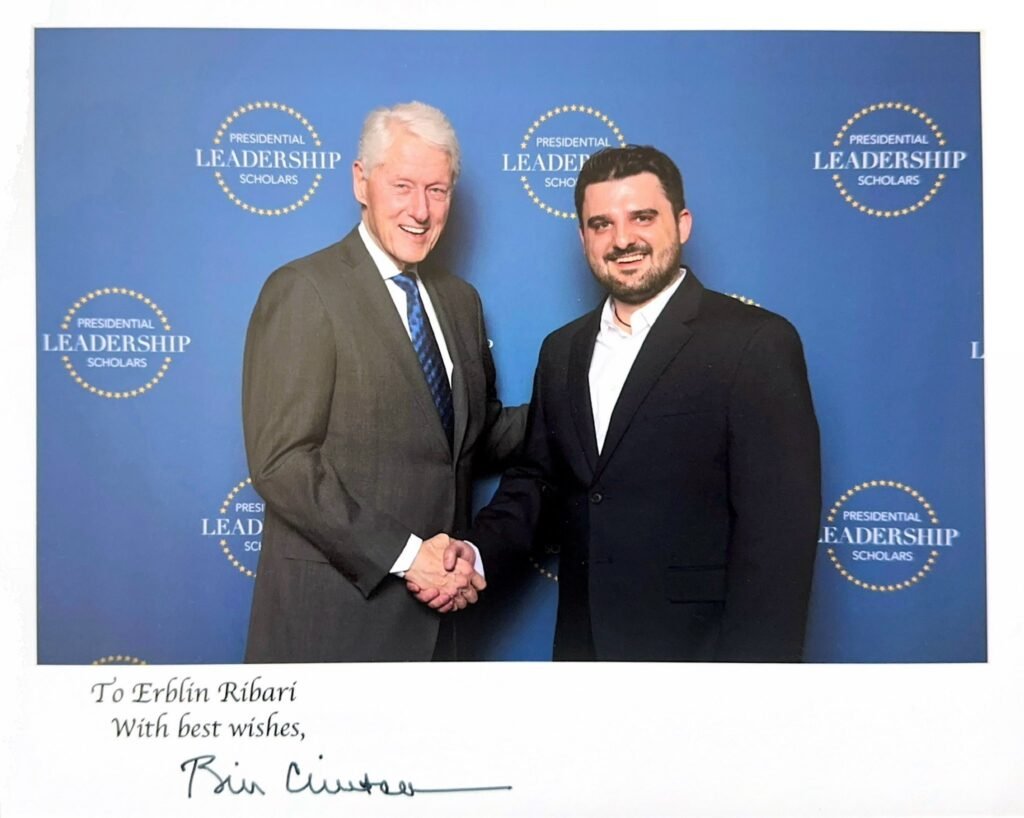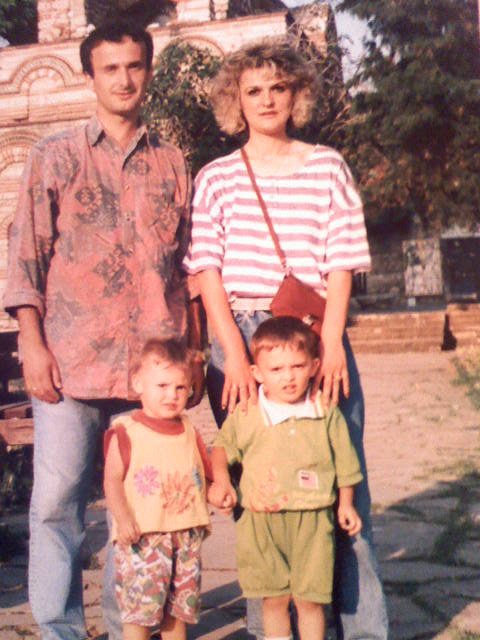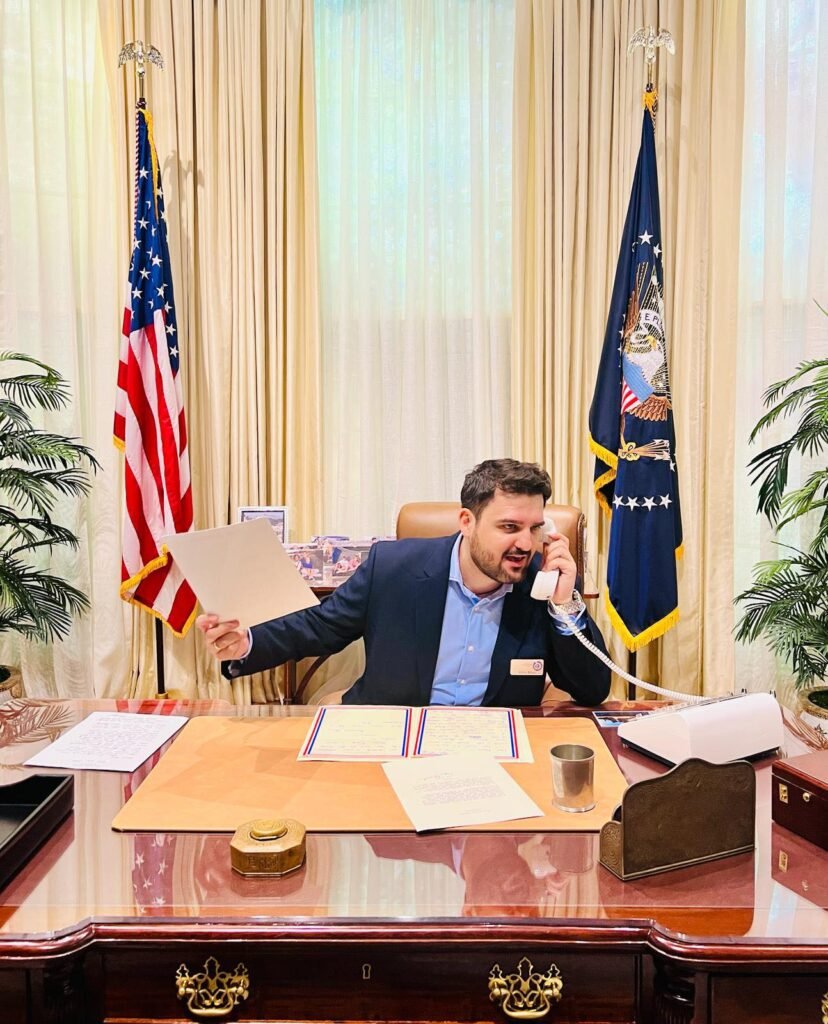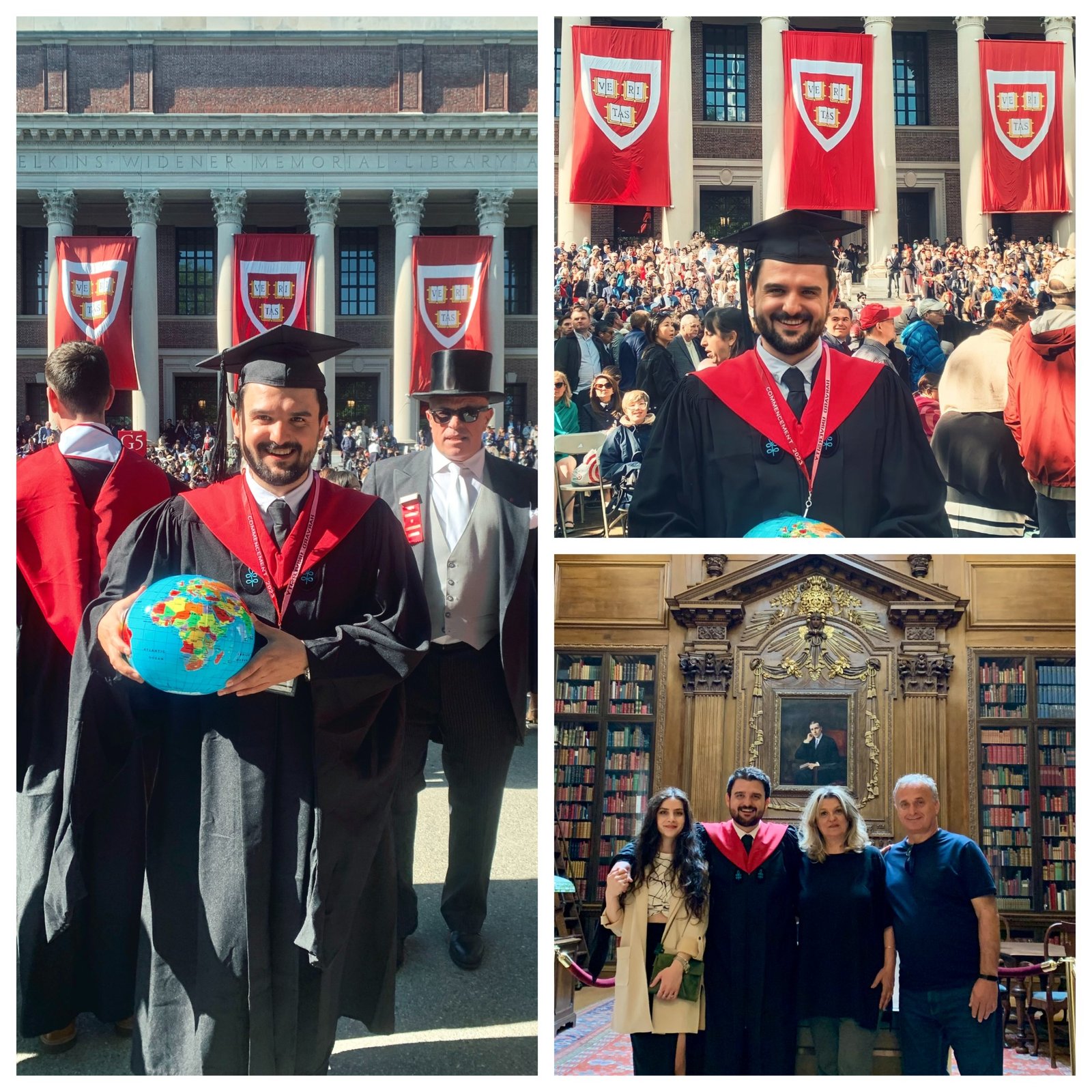Erblin Ribari is not just a successful professional in economic development and technology—he is a powerful voice for those who are too often left behind. From experiencing life as a refugee during the Kosovo war to working with global institutions and mentoring entrepreneurs across continents, Erblin’s journey is one of resilience, purpose, and impact. In this heartfelt interview, he reflects on the early challenges that shaped his path, his mission to build solutions for overlooked communities, and his unwavering belief that success means creating opportunity for others while staying true to who you are. Read our full interview to learn more about him.
1. How did your professional journey start, and what moments shaped you the most as a professional?
Like many Kosovars, I grew up knowing what it means to lose everything overnight. I was six years old when my family fled the war and became refugees in the Netherlands. I remember sitting in the refugee camp, watching my parents try to stay strong for us while nothing around us felt certain. I didn’t understand politics or war, but I understood fear. I understood what it felt like to be forgotten, and that feeling never really left me. It shaped how I see people and why I care deeply about creating opportunities for those who are too often left out. No one should grow up feeling invisible.
When we returned to Kosovo, I hoped life would feel normal again, but it didn’t. The country was free, but for many of us, the future still felt out of reach. Like many young people, I grew up in a place where dreams seemed too distant. That frustration pushed me to act. As a teenager, I began speaking on national television about children’s rights and discrimination because I couldn’t accept that this was all life had to offer. Later, I joined the European Youth Parliament and helped establish its chapter in Kosovo. I wanted young people from my country to feel something I never had: a sense of connection, of possibility, of being seen.
What shaped me most weren’t the successes, but those early moments of loss and silence. Feeling invisible taught me to listen. Feeling powerless taught me to build. And feeling disconnected taught me to help others find their place. That is what continues to push me forward. Over the years, this journey has taken me from refugee camps to boardrooms, and into conversations with leaders like President Clinton, President Bush, and Secretary Clinton. Those moments reminded me just how far a voice can travel when it begins in silence but carries with it clarity, truth, and purpose.

2. What is the mission or personal motivation that drives you forward in every commitment you take?
I am driven by the need to build things that matter for people who are often overlooked. That mindset shaped my early work with the United Nations, Swisscontact, and GIZ, where I supported small businesses in building the trade capacity and infrastructure necessary for growth. Later, at dua.com, we created a platform that helped millions of people reconnect with their roots and communities. That experience taught me that technology built with purpose can solve real human problems.
Today, I carry that same belief forward at Manaxo. I work with small businesses that work hard but are stuck using systems not designed for their needs. At Manaxo, we focus on building simple and effective tools to help businesses manage operations and grow more easily. In parallel, I mentor entrepreneurs through Stanford Seed and support businesses through the European Bank for Reconstruction and Development. Whether I am working with founders in India or small enterprises in Southeast Europe, Moldova, or Lebanon, the goal remains the same: to provide tools and support needed to move forward.
This is what keeps me going. Building solutions that make work easier and create a more possible future. Not abstract ideas but tools that can be used to build something meaningful.
3. What are the biggest challenges you’ve faced in your career and how did you overcome them?
One of the biggest challenges early in my career was learning to build without the resources or systems that others take for granted. Growing up in Kosovo, I saw firsthand that opportunities are not distributed equally. Even when people work hard, they often remain stuck because the support or tools they need simply do not exist. This reality shaped how I work. It taught me to be resourceful and to find solutions where others might give up.
Another challenge has been convincing people to believe in ideas that do not fit traditional models. Whether at dua.com or Manaxo, I have worked on problems that many do not see until they are solved. Building a platform for diaspora communities or creating simple tools for small businesses in overlooked regions is not always immediately understood. I learned to be patient, to communicate the mission clearly, and to focus on doing the work rather than trying to convince everyone from the start.
What has helped me overcome these challenges is simple. Staying close to the people I am building for and collaborating with those who share the same commitment to solving these problems. That mindset has guided me at every step of my career.
4. How do you choose the projects or initiatives you get involved with? What do they need to have in order to inspire you?
I choose projects that feel real to me. If I cannot see the people behind the problem, I do not get involved. What motivates me is knowing that what we are building will make life easier for those trying to move forward but lacking the tools or support they need. I am drawn to challenges that have been ignored simply because no one took the time to care. Equally important are the people involved. I commit when I see individuals who care about solving the problem more than seeking recognition. That is how I know the work matters.

5. In your experience, how can the diaspora contribute to Albania’s and Kosovo’s economic and social development?
In my experience, the diaspora can help drive change not just through investment but also through knowledge, skills, and access. People who have lived and worked abroad bring perspectives that are often missing locally. By sharing their experience and networks, they help businesses grow, open new markets, and remove barriers that hold others back.
What makes the biggest difference is practical involvement, such as mentoring young entrepreneurs, supporting small businesses, building partnerships, and connecting people to new markets. Small actions like these help both Albania and Kosovo move forward. They also help reduce brain drain. When people see opportunities at home, they are more likely to stay and build their future there.
I believe the diaspora should not be seen as an external group. Instead, it should be treated as a real partner in shaping the future of both Albania and Kosovo.
6. How do you see the development of young people in Albania and Kosovo, and what can be done better to support them?
Young people in Albania and Kosovo are not lacking talent or ambition. What they are lacking is opportunity. Many of them grow up believing that success means leaving. That is the hardest part to watch. It is not that they want to leave. It is that they do not see another way.
What they need is not more advice. They need people who will open doors for them. They need access to skills that match real jobs. They need to see examples of people who built something at home and succeeded. Small, practical steps would help. Give them chances to work, to learn, to be taken seriously. That is what will keep them moving forward.
I believe the only way to support young people is to stop treating them as the future and start treating them as the present. They are ready now. What they need is someone to believe in them.
7. For a professional who has experienced both life abroad and at home, how does the way of thinking and acting change?
Living between two worlds changes how you think, whether you notice it or not. When you live abroad, you see what is possible when systems function well and people have the resources they need to move forward. You begin to question things you once accepted and stop viewing limitations as normal. When you return home, you gain a different perspective. You see people working hard, yet the systems around them make progress slower and more difficult.
For me, experiencing both worlds taught me not to judge. Change only works when it makes sense for the people who live with it every day. You cannot simply copy solutions from elsewhere. You need to listen first, then build something that fits. Living abroad taught me to believe that things can improve. Living at home taught me that change takes time and respect. Both experiences have shaped how I think and lead.
8. How do you manage to balance your personal life with your many professional commitments?
I do not always get it right. Balancing personal life and work is something I continue to learn. There are moments when work takes over, and I have to remind myself that life is about more than projects and goals. What helps me most is spending time with friends and family. Being around people who know me beyond my professional role helps me slow down and reconnect with what truly matters. Even small breaks, like stepping out for a coffee or taking a short walk, help me reset.
At the end of the day, work will always be there. What matters most is showing up fully for the people I love. That is the balance I strive to maintain.

9. What is one key lesson you would like to share with the next generation of Albanian professionals?
Do not wait for perfect conditions to start. Too many people hold back because they think they need more resources, more experience, or someone’s permission. Start with what you have and learn as you go. Progress comes from taking the first step, not from waiting until everything feels ready.
Equally important, remember that success is not something you build alone. Surround yourself with people who challenge you to grow and who care about the work as much as you do. That support will carry you further than any title or degree.
10. If you had to define success in one sentence, what would you say?
Success is creating positive impact for others while staying authentic to who you are.

0 comments